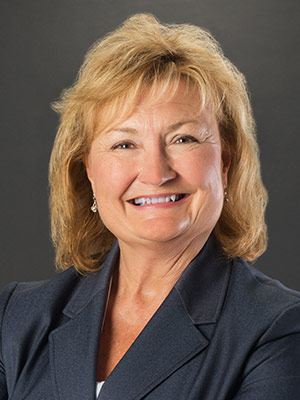Not FDIC Insured | Not Bank Guaranteed | May Lose Value | Not Insured by any Federal Government Agency | Not a Bank Deposit
At their beginning in the 14th century, trusts were used to to defeat the rigid rules of passing on property and the taxes imposed. As the nature of wealth has changed, so has the nature of trusts. Today, trusts are flexible tools for managing financial assets, such as stocks, bonds, mutual funds, insurance contracts, pension and annuity interests, and bank accounts. Among the types of trusts most commonly used by families today:
- Living trusts provide asset management and financial protection in case of disability of the grantor (and the grantor’s spouse, if there is one);
- Marital trusts protect a surviving spouse for life and are sheltered from federal estate taxes;
- Bypass trusts expand family protection from death taxes;
- Inheritance protection trusts can be used to preserve a legacy for heirs for the long term;
- Qualified Terminable Interest Property Trusts (QTIP trusts) balance the interest of a surviving spouse and children in a blended family situation;
- Charitable trusts meet both philanthropic and private financial objectives.
Core elements of every trust
The creator of a trust is customarily called the grantor. The grantor works with an attorney to prepare the trust agreement, which will give the trustee the instructions about the management of the trust and the distribution of income and principal. Every trust has beneficiaries, for whose protection the trust has been created. The grantor may be the first and foremost beneficiary of a revocable living trust—or the grantor and spouse. Otherwise, other heirs are named, whose interests will vest at various times, as specified in the trust agreement. If the trust is revocable, the grantor may amend it at any time, even terminate it. If the trust is irrevocable, such as a trust created at death by a will, it normally cannot be changed without court proceedings. Finally, there must be a trustee. That could be an individual or a corporate fiduciary, such as American Bank & Trust.
When should you consider a trust?
Trusts offer advantages in wealth management that are not available with ordinary investment accounts. Trusts can be used to achieve some or all of the following objectives:
- Provide lifetime financial protection for a surviving spouse.
- Establish inheritance management for minors, and incapacitated or disabled family members.
- Protect assets from creditors.
- Reduce or eliminate death taxes.
- Increase financial privacy and confidentiality regarding wealth distribution.
- Implement a program of philanthropy.
- Protect an estate plan from claims by disgruntled heirs.
- Provide complete financial management in the event of your own incapacity.
Whatever the reason for creating your trust, the next question is crucial: Whom should you choose as your trustee? Who has the qualifications to see to it that your trust plan will succeed? Where would you look for the right trustee?
Who should be your trustee?
Typically, a trust grantor is deciding between a corporate fiduciary and an individual. A corporate fiduciary is a company that has been granted the legal right to act as a trustee, such as American Bank & Trust. The individual may be a family member, friend, or business associate. Factors that should be considered include:
- Judgment and experience. Inexperienced trustees may dissipate the trust assets, or make administrative mistakes that result in delays or other problems.
- Impartiality. A trust typically has current income beneficiaries and future or remainder beneficiaries. The interests of both types of beneficiaries must be balanced carefully. Conflicts need to be resolved by a trustee that all the beneficiaries can respect.
- Investment sophistication. The Uniform Prudent Investor Act and other laws governing the investment of trust assets must be adhered to. The trustee should be able to increase returns or reduce portfolio volatility, and must be able to diversify the portfolio.
- Permanence and availability. Many trusts are expected to last a decade or more. Corporate trustees have the advantage of perpetual existence.
- Sensitivity to individual beneficiaries’ needs. Understanding the individual needs of trust beneficiaries is very important, and on this issue many will assume that the friend or family member has the advantage. This is not necessarily the case, but sometimes an individual will be made cotrustee to handle such decisions. Even so, a corporate trustee might be brought into the process for an objective voice and to prevent unreasonable distributions.
- Accounting and recordkeeping. Detailed trust records are required, and few individuals are equipped to handle this chore properly.
- Fees. There is a chance that the fees charged for trust administration will be lower when a friend or family member is named as trustee. However, when a trustee is serving for little or no compensation, it becomes hard to give the trust the attention that it deserves.
In the usual case, the trust assets consist of ordinary investment assets, such as stocks, bonds, or mutual funds. In that situation, a corporate trustee is likely to be a very cost-effective alternative.
Would you like to know more?
The central features of today’s trusts are professional asset management, conducted under fiduciary safeguards, in a segregated vehicle, which is bankruptcy-remote from the manager. This is what we do. How could a thoughtful trust plan improve the financial security of you and your family? An American Bank & Trust Wealth Management Specialist would be pleased to explore that important question with you in more detail.
Meet Our Trust Team

Mark Sivertson
Senior Vice President

Rosanne Krier
Vice President / Trust Officer

Levi Kary
Trust Officer
Want to know more about this topic?
Subscribe to our newsletter today!

